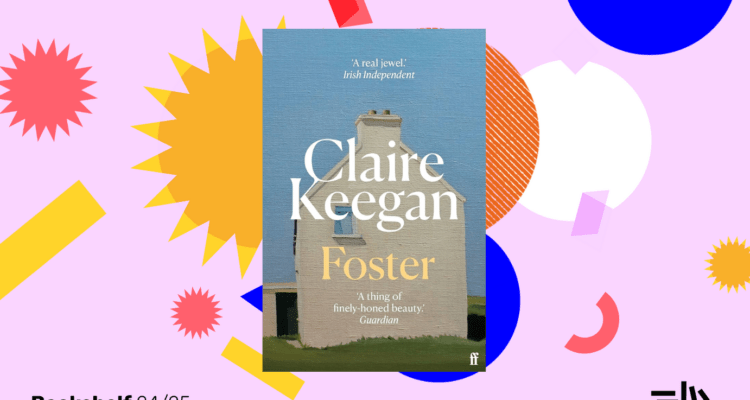Recommended Reads: The Poetry of Edward Thomas
Sue Garner-Jones did her post-graduate research at the University of Liverpool where she now teaches English in the Continuing Education Department. She has written for many publications, including 'The Literary Encyclopaedia'.
Edward Thomas’s ‘Old Man’ is Andrew Motion’s favourite poem and one can readily see why. As Motion says, 'it so brilliantly proves, as do all his poems, that you can speak softly and yet let your voice carry a long way'. Thomas always writes as though nature is a personal friend, yet the intimacy is often disturbed by murmurings of disquiet and this combination of seemingly disparate forces particularises Thomas, both as poet and acute observer of nature.
Born in London in 1878 for most of his life Thomas was a writer of prose about the countryside; a ‘rambler’ who reveals personal pictures, always imbued with something of himself. Towards the end of his short life Thomas’s poetic voice emerged more fully, though even in early prose works like The Woodland Life, written in 1897 when he was just nineteen, the future poet is clearly evident:
At length the road emerges from its groove on to the hill-top, and once more it is level and bounded by narrow woods of spruce, whence comes the startling challenge of the pheasant-cocks. Meanwhile the twilight air has become keener and the wind rises -- humming through the green firs. The smaller birds are nearly all in cover, and only a belated pipit or a steady flapping rook moves aloft in the rude air. Sometimes, in the hedges that line the way, robins rustle gently and fly a yard or two, or a blackbird blusters out; otherwise the life so lately stirring is silent, and the tomtits are rocked asleep amid the swaying larch-boughs.
Thomas employs language more usually reserved for poetry: the alliteration of the ‘blackbird blusters’, the onomatopoeia of the ‘rustle’ and the ‘humming’ and the startling juxtaposition of personal perspective with acute observation. The ‘life so lately stirring is silent’ and in that silence Thomas implicitly evokes George Eliot’s ‘roar’. The awesome cycle of life is encapsulated in a whisper where ‘tomtits are rocked asleep’ and Thomas tiptoes with a reverence that never loses its connection with the ‘real’.
When he writes, in ‘Old Man’, of seeing a child ‘pluck a feather’ surreptitiously from the bush, he invents a future memory from the image:
Old Man, or Lad's-Love, - in the name there's nothing
To one that knows not Lad's-Love, or Old Man,
The hoar-green feathery herb, almost a tree,
Growing with rosemary and lavender.
Even to one that knows it well, the names
Half decorate, half perplex, the thing it is:
At least, what that is clings not to the names
In spite of time. And yet I like the names.
The elusive nature of ‘the thing it is’ both energises the poet and evokes restless searching, almost for an absence, an intrinsic emotion which continues to move, stir and ‘perplex’. Thomas, like Shakespeare’s Juliet, sees that ‘in the name there’s nothing’ yet ‘like[s] the names’; tension between knowledge and truth is evident, moreover ‘in spite of time’. The ‘memory’ which he has lost is also seen as a link across the generations, ‘I can only wonder how much hereafter she will remember’, he muses, and is united with the child’s present and future sense:
Where first I met the bitter scent is lost.
I, too, often shrivel the grey shreds,
Sniff them and think and sniff again and try
Once more to think what it is I am remembering,
Always in vain. I cannot like the scent,
Yet I would rather give up others more sweet,
With no meaning, than this bitter one.
I have mislaid the key. I sniff the spray
And think of nothing; I see and I hear nothing;
Yet seem, too, to be listening, lying in wait
For what I should, yet never can, remember :
No garden appears, no path, no hoar-green bush
Of Lad's-love, or Old Man, no child beside,
Neither father nor mother, nor any playmate;
Only an avenue, dark, nameless, without end.
Love of the elusiveness of the ‘memory’ and loss of ‘the key’ nurtures the imagination. He ‘cannot like the scent’ but would not sacrifice it, since the need for mystery is basic. The repetition of ‘nothing’ emphasises the presence within the absence, ‘for what I should, yet never can remember’. The subliminal guilt of ‘should’ leads inevitably to the ‘avenue, dark, nameless, without end’ and the fascinating complexity in the combination of fear and longing, separation and union.
Nature is frequently employed as metaphor by Thomas, particularly the image of ‘the forest’, a familiar literary emblem of mystery, magic and enchantment:
The forest ended. Glad I was
To feel the light, and hear the hum
Of bees, and smell the drying grass
And the sweet mint, because I had come
To an end of forest, and because
Here was both road and inn, the sum
Of what's not forest. But 'twas here
They asked me if I did not pass
Yesterday this way. 'Not you? Queer.'
'Who then? and slept here?' I felt fear.
Here, as in the poem ‘Lights Out’, Thomas imbues the environs of his ‘forest’ with a fearfulness which has not even the comforting familiarity of myth. He expresses sensual pleasure and relief at being once again part of ‘the sum of what’s not forest’, yet qualifies it with the heavy ‘But’ which begins the discomfort of the confrontation with ‘the other’. This dichotomy appears to have been fundamental to poet and man, along with an inability ever to be completely quiescent.
The restlessness evident in his writing connects directly with the way in which he is drawn to the ‘wildness’ of Nature:
Tall nettles cover up, as they have done
These many springs, the rusty harrow, the plough
Long worn out, and the roller made of stone:
Only the elm butt tops the nettles now.
This corner of the farmyard I like most:
As well as any bloom upon a flower
I like the dust on the nettles, never lost
Except to prove the sweetness of a shower.
Nature’s inexorability overwhelms the implements of farming and the corner the poet likes most is where nature is entirely in control: nature heals itself.
Thomas’s close friend Robert Frost recalled that he possessed an endearing idiosyncrasy. Following a carefully selected walk, Thomas would invariably turn to Frost and remark that he wished they had taken another ‘better’ road. Frost, rejecting this type of regret, adopted Thomas’s wistful persona in his poem ‘The Road Not Taken’, which he sent to Thomas expecting to share the joke. Thomas, however, failed to recognise himself in another’s picture.
Edward Thomas was killed on Easter Day, 1917, at the Battle of Arras. Six weeks before his death he noted in his diary that ‘a chaffinch sang once’. Thomas’s own ‘soft’ song does indeed, as Motion remarked, ‘carry a long way’.
Posted by Sue Garner-Jones
_____
Edward Thomas has featured here before. Back in October 2007 Katie Peters discussed using one of his poems in a reading group at a care home. The following month poet Julie-ann Rowell recommended his poem 'Adlestrop' as one of our Featured Poems.
Share
Related Articles

December’s Stories and Poems
The Reader Bookshelf theme of ‘Wonder’ might make many of us think of the very special kind of wonder which…

December’s Choice From The Reader Bookshelf
The Reader Bookshelf is a carefully curated collection of literature for adults and children, exploring a different theme each year, this year’s…

November’s Stories and Poems
This month, we are turning our focus to a major part of The Reader’s in Criminal Justice settings. For 15…


